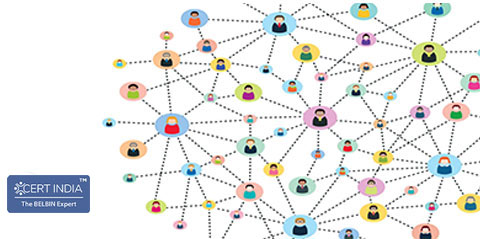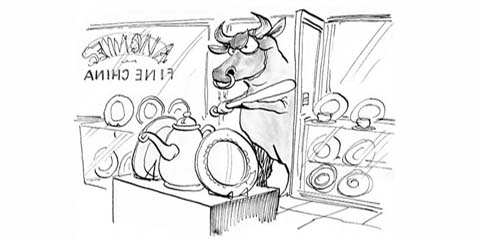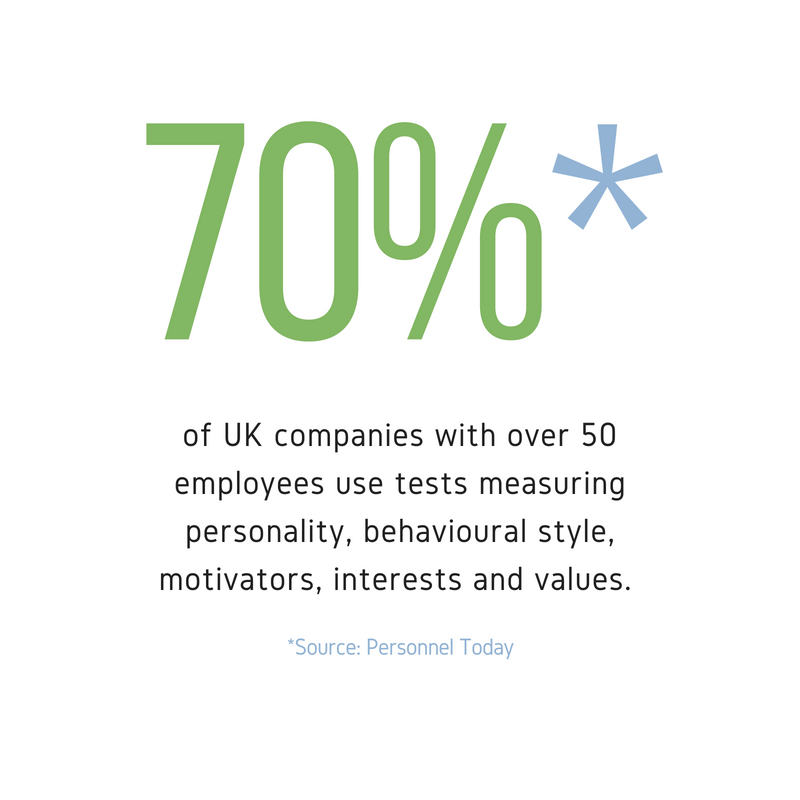
SMEs to multinationals...
...many organisations use testing of some sort (whether aptitude, suitability, psychometric or behavioural) to help manage, develop, engage, and make decisions about, individuals within their organisation.
The benefits of introducing testing into the workplace (whether for recruitment, or for ongoing personal and team development) include:
- Providing an external, objective view of an individual, which is not biased by the perspective of an individual (such as a line manager) or by the organisational culture.
- Helping individuals to learn about themselves by presenting them in a new light. The provision of tailored information allows individuals to manage their career progress and set targets based on their performance.
- Analysing fit between individuals and jobs, so that appropriate skills and training needs can be identified.
- Building teams of individuals who work harmoniously and productively together
First, you need to decide exactly what you, or your organisation, hope to gain from testing.
What sort of information or advice do you wish to obtain that will help you with the organisation’s recruitment or personal development project? How will line managers, HR, trainers or consultants be using the information provided, and to what end?
At Belbin, we distinguish between behaviour and personality.
Many tests claim to cover both behaviour and personality, but actually, these are distinct, so it’s important to find out exactly what your chosen test will be measuring. Belbin measures behaviour and does not have psychometric properties. There are a number of different factors which influence our behaviour – and personality is one of them. Others include: skills and abilities; values and motivations; experiences and external influences. Whilst personality may not be immediately apparent to others, behaviour is – it’s the outward manifestation of all those factors, working together and acting on other people.
Many psychometric or personality tests provide results which focus on an individual’s personality traits. Bear in mind that whilst this information may be edifying for the individual concerned, it is not necessarily the most useful form of feedback for the organisation. Instead, it may be more advantageous to retrieve practical advice which is grounded in 360-degree peer reviews and which is specifically focused on the work setting.

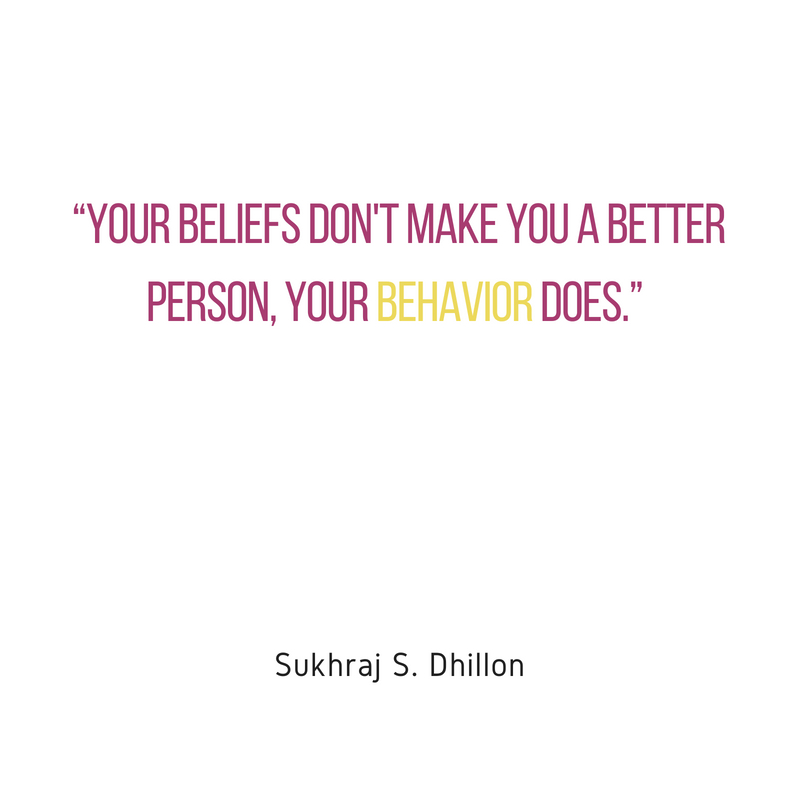
What is a Psychometric Test?
There are many tests that focus on an individual’s personality. Aspects such as extroversion/introversion, thinking/feeling are measured and are considered relatively fixed. They are based on an individual’s answers to a range of questions. There is no 360-degree view, so one could say that the outcome is only as good as an individual’s self-knowledge.
The question to ask is whether the outcome of a psychometric test has a great deal of bearing on the individual’s performance in the workplace? Does it matter that a member of staff can be labelled an extrovert, or is it more useful to see how that staff member contributes in a particular work situation?
At Belbin, we feel that the latter is more useful and thousands of organisations worldwide agree. Of course personality is a factor, but it is only one of many that influence an individual’s behaviour.
What's a behavioural test?
A behavioural test investigates propensities towards certain kinds of behaviour and styles of interaction with others, rather than measuring personality traits. Behaviour is regarded as more changeable than personality, since we can adapt our behaviour depending on what is required of us in a given situation or role.
Behaviour is also observable. This means that it affects, and is affected by, those around us. This makes the process of understanding and adapting our actions a democratic one: whilst we wouldn’t ask others to tell us about our personalities, we often remark on one another’s behaviour.
Finally, behavioural tests can provide constructive feedback which directly informs the way an individual behaves in the workplace. Personality is unlikely to change, so to dust off the cobwebs and get individuals and teams working more effectively, we need to focus on the point where changes can be made: our behaviour.
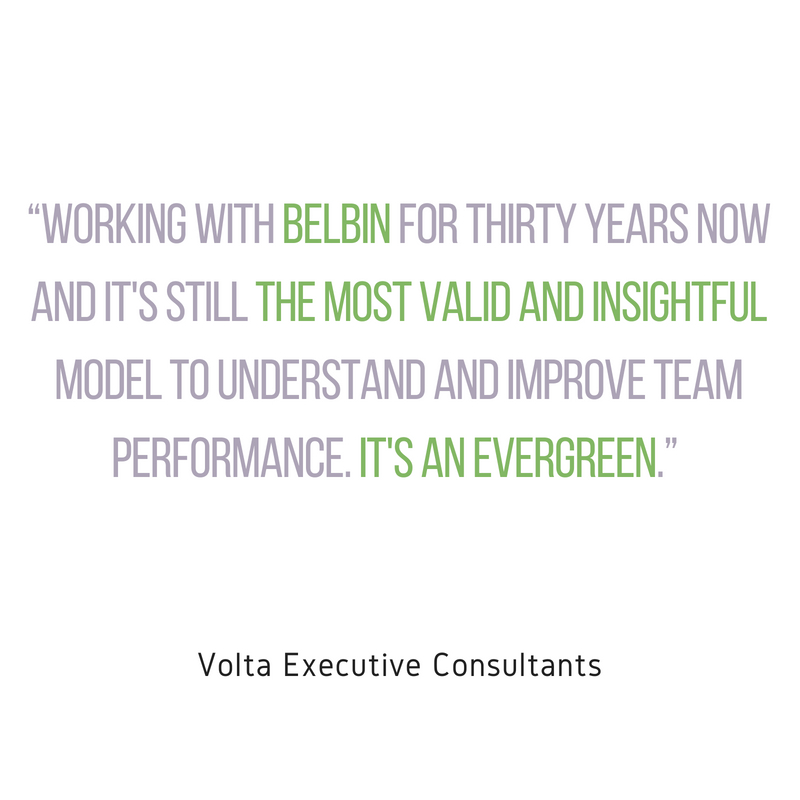
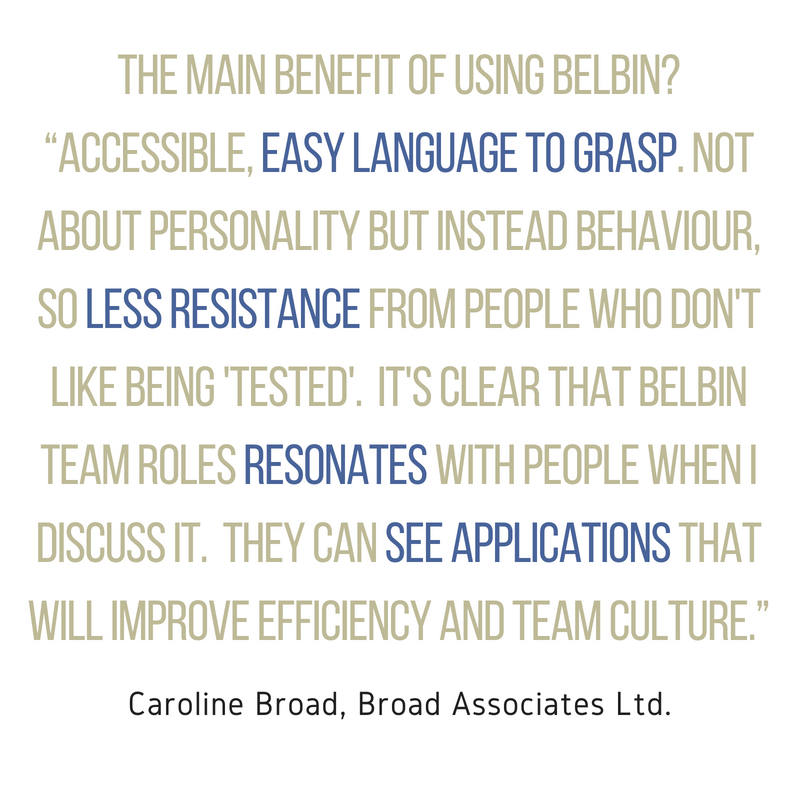
Belbin Team Roles – Behaviour or Personality testing?
Belbin is concerned with behaviour: what others in your team see and experience. Whilst this may be influenced by your personality, this is not the only factor.
In a nutshell, during the 1970s, Dr Meredith Belbin and his research team at Henley Management College set about observing teams. As the research progressed, the research revealed that the difference between success and failure for a team was not dependent on factors such as intellect, but more on behaviour.
The research team began to identify separate clusters of behaviour, each of which formed distinct team contributions or “Team Roles”. A Team Role came to be defined as:
"A tendency to behave, contribute and interrelate with others in a particular way."
It was found that different individuals displayed different Team Roles to varying degrees. Moreover, the behaviour assumed might not correspond with what others observe. Whereas many psychometric tests rely on self-reporting, the Belbin assessment uses 360° feedback to give you an accurate idea of how you fit in your team.
We believe in change. So, we think behaviour holds the key.
'Personalities' don't always reveal themselves wholly and uniformly at work – it can vary enormously, depending on who we are and what we do. Preconceived ideas and aspirations can stand between the person we want to be and the one who really shows up at the office.
By focusing on our behavioural styles, and allowing others to evidence how they interpret our behaviour at work, we have real opportunities to work to our strengths and contain the weaknesses which may stand in the way of success.
Using the language of Belbin Team Roles, organisations can use real team data to take practical steps that introduce and instil lasting change.
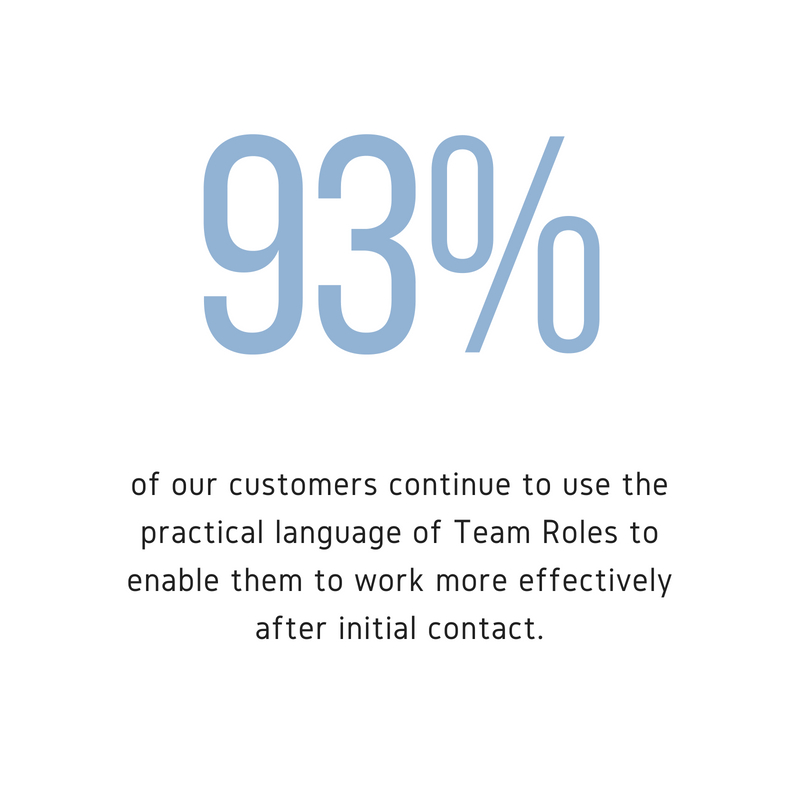
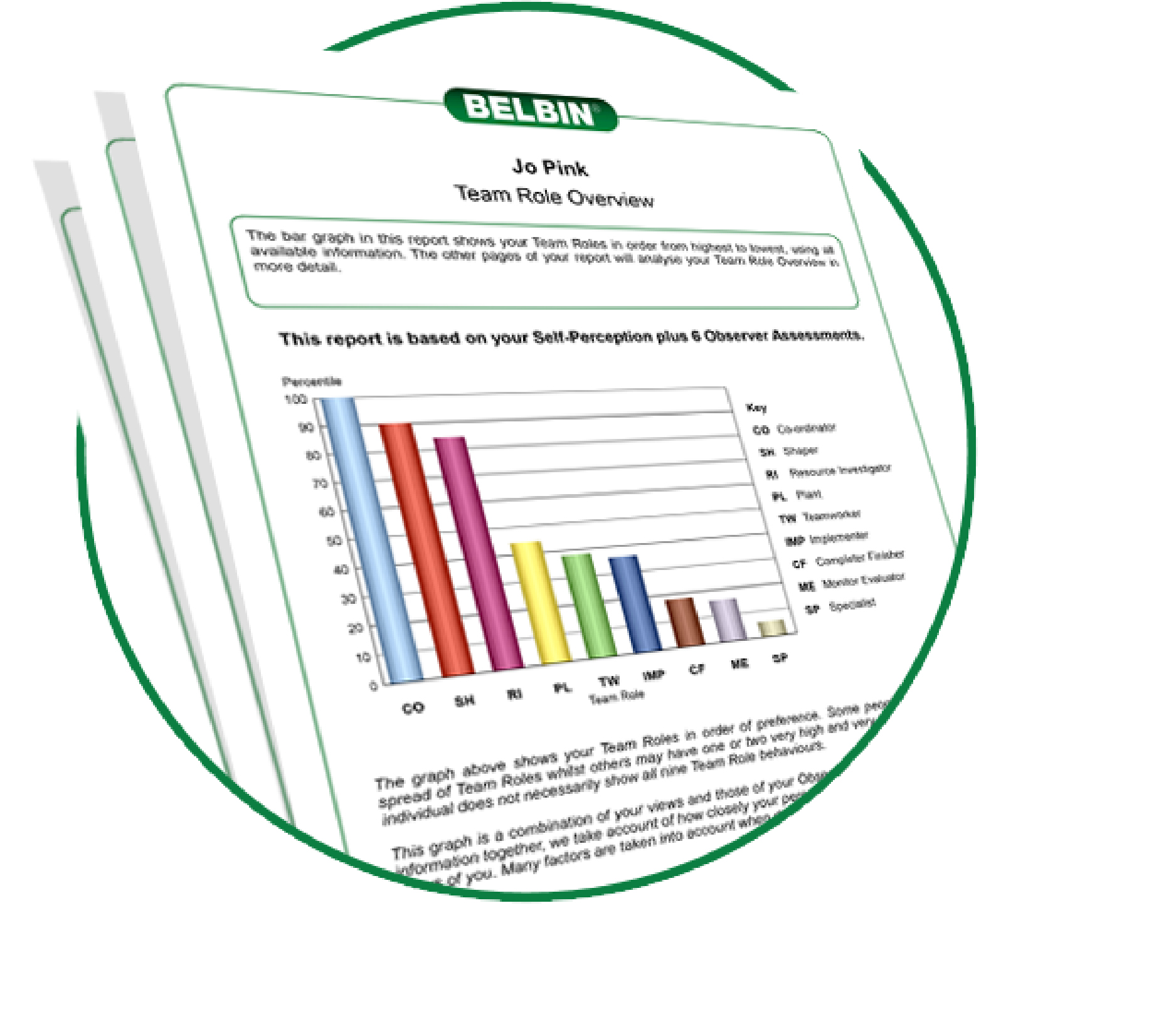
In a nutshell, using Belbin will give you:
- Balanced teams based on behavioural contributions rather than job titles
- Self-aware individuals who can adapt their behaviours according to the situation and business need
- The right people doing the right tasks, leading to better-performing teams
- Depersonalised team conversations, using a common language to discuss team contributions
- Informed, impartial decision-making, based on fact rather than a 'gut-feel' which may be subject to unconscious bias
- Confidence when making decisions involving people
- Insight into behavioural strengths and weaknesses which aren't necessarily revealed by a CV
The Belbin Reports
The first step to uncovering strengths and weaknesses is for individuals to complete the Belbin questionnaire, called the Self-Perception Inventory, and where possible, to obtain feedback from colleagues and managers.
Once the Belbin Individual Reports have been generated, conversations can begin...
Here are some quick and easy ways for you to get started with BELBIN. Pick the option that best speaks of your interest
- Keep me updated on upcoming events & latest insights from the Belbin world on transforming performance of people and teams
- Let me begin by downloading a 2 Pager on the nine BELBIN Team Roles
- Let me begin by downloading samples of a BELBIN Individual Report and BELBIN Team Report
- I want to BELBIN an individual and a team. Tell me how
- I want to get BELBIN Accredited. Tell me how.








